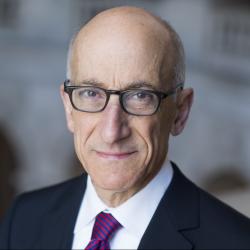This is the authors’ third Brookings paper on what the Biden administration can do in regard to digital asset innovation and regulation without the need for new legislation. The earlier two papers are “The Treasury Option: How the US can achieve the financial inclusion benefits of a CBDC now” and “How we can regulate stablecoins now—without congressional action.”
For the past decade, the development of appropriate regulatory standards for the crypto industry has been hampered by interminable debates over whether particular digital assets are securities or commodities or something else. The recent crash in crypto prices and the collapse of several crypto firms have prompted renewed calls for better regulation. The fact is the industry today does not comply with investor protection standards comparable to other financial markets, and hundreds of thousands of people have suffered losses. But there is no consensus on the path forward to achieve better regulation. Crypto industry participants have long complained of a lack of regulatory clarity, and have argued that existing securities and derivatives laws do not really fit. Others—including Chairman Gary Gensler of the Securities and Exchange Commission (SEC) —say the problem is a lack of compliance with existing legal requirements, and certainly industry participants have exploited jurisdictional gaps. Some are looking to Congress to intervene, but views diverge greatly on what kind of legislation is needed.
In this paper, we propose that the SEC and the Commodity Futures Trading Commission (CFTC) jointly create and oversee a new self-regulatory organization (SRO), similar to the Financial Industry Regulatory Authority (FINRA) or the National Future Association (NFA). The mission of this new SRO would be to protect investors and financial markets by developing and enforcing much-needed standards for the crypto industry. Creating an SRO overseen jointly by the SEC and CFTC could avoid the need to litigate whether digital assets are securities or commodities; it could develop standards common to platforms trading different types of crypto assets. An SRO would not involve changing our traditional standards for securities and derivatives, nor would it undermine the authority of either the SEC or the CFTC. An SRO could also be a means to determine whether further legislation is actually needed and could help build consensus on what that legislation should look like. The work of an SRO could be funded by the industry. SROs recognized by the SEC and CFTC have been and continue to be critical to the regulation of our securities and derivatives markets.
To be clear, the industry-initiated efforts to date that have been labeled “self-regulatory organizations” fall far short of what we envision. An SRO can succeed only if the government aggressively supervises its work—including by exercising control of its leadership, approving all SRO rules, and ensuring that the SRO enforces those rules. The SEC and the CFTC could create such an SRO today, under existing law, without Congressional action. While the agencies may not have the formal power to require crypto firms to join the SRO, we believe they could create powerful incentives to encourage membership and compliance with SRO rules. The responsible members of the crypto industry would have every reason to join such a well-regulated SRO once created.
Timothy Massad is a member of the PayPal Advisory Council on Blockchain, Crypto and Digital Currencies. Howell Jackson is an independent trustee of CREF and affiliated TIAA-CREF mutual funds and also is on the board of Commonwealth, a nonprofit organization that promotes financial inclusion and access. The authors did not receive financial support from any firm or person for this article or from any firm or person with a financial or political interest in this article. Other than the aforementioned, the authors are not currently an officer, director, or board member of any organization with a financial or political interest in this article.
The Brookings Institution is financed through the support of a diverse array of foundations, corporations, governments, individuals, as well as an endowment. A list of donors can be found in our annual reports published online here. The findings, interpretations, and conclusions in this article are solely those of its authors and are not influenced by any donation.








